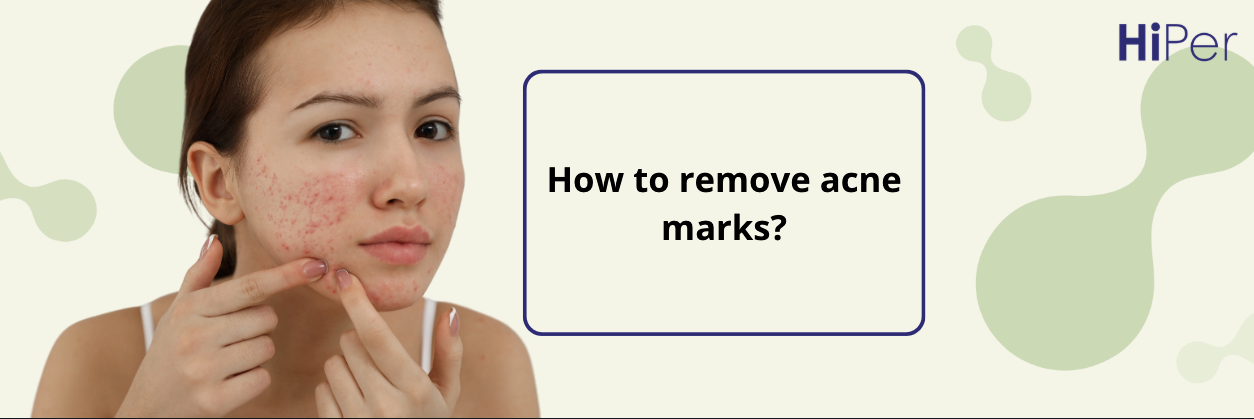
Is Acne Genetic? Let’s Unpack the Truth
Acne is one of the most common skin conditions worldwide—affecting nearly 9 out of 10 teens and continuing into adulthood for many. If you’ve battled persistent breakouts, you’ve probably wondered: “Is acne genetic? Did I inherit this from my parents?”
At HiPer Skin, we believe that understanding the root cause of your skin issues is the first step toward transforming your skin. So let’s unpack the science behind genetic acne and how you can manage it—regardless of your DNA.
🔬 What Causes Acne?
Before diving into the genetics, let’s review what causes acne in the first place:
-
Excess sebum (oil) production
-
Dead skin cells clogging pores
-
Bacterial overgrowth (C. acnes)
-
Inflammation
Hormones, stress, skincare habits, diet, and environmental triggers all play a role. But one major factor that often goes overlooked is your genes.
🧬 The Genetic Link to Acne
Multiple studies have shown a strong hereditary component to acne. If one or both of your parents had moderate to severe acne, you’re significantly more likely to develop it too—especially early-onset or cystic acne.
Here’s what science says:
-
A 2002 study in Journal of Investigative Dermatology found identical twins were more likely to share acne severity than non-identical twins.
-
A 2014 study found people with a family history of acne had a 4x higher risk of developing it.
So yes—acne can be genetic. But what exactly is being passed down?
🧠 What Do You Inherit?
There’s no single "acne gene," but your DNA influences several factors:
-
Sebum Production
Hyperactive oil glands can be inherited. If your skin feels greasy soon after washing, it might be in your genes. -
Hormonal Sensitivity
Even normal hormone levels can trigger acne if your skin is genetically more responsive to androgens. -
Skin Cell Turnover
Slow shedding of dead skin cells increases the risk of clogged pores and breakouts. -
Inflammatory Response
Some people’s skin reacts more aggressively to bacteria, causing intense inflammation. -
Immune System & Microbiome
Your skin’s bacterial balance is partly genetic. An unbalanced microbiome can lead to more frequent breakouts.
🔎 What Does Genetic Acne Look Like?
-
Early onset (pre-teen or early teens)
-
Persistent or recurring breakouts
-
Deep cysts or nodules
-
Breakouts on face, back, chest, and shoulders
-
Little improvement from OTC treatments
If this sounds like your skin, your acne might have a genetic root.
✅ Can You Beat Genetic Acne?
Yes! You can’t change your DNA, but you can manage its effects.
1. 🧴 Choose Biology-Friendly Skincare
HiPer products are built to support:
-
The skin microbiome (with biotics)
-
Inflammation (with niacinamide + green tea)
-
Oil + clogged pores (with salicylic acid, azelaic acid, zinc)
Bonus: Our barrier-friendly formulas reduce irritation and prevent rebound breakouts.
2. 🕒 Stay Consistent
Genetic acne is stubborn. Stick to a routine for 6–8 weeks before switching. Progress takes time.
3. 🧑⚕️ Go Pro with the HiPer Challenge
Our 28-Day HiPer Challenge uses AI-powered skin analysis and custom routines, backed by dermatologist's support, to target acne with precision.
4. 🧘 Don’t Ignore Lifestyle
Helpful habits include:
-
Managing stress (cortisol = oil)
-
Avoiding high-glycemic foods
-
Prioritizing sleep + hydration
-
Cleaning pillowcases + phones
🚫 Common Myths About Genetic Acne
“If it’s in my genes, nothing will work.”
Not true—the right routine can still transform your skin.
“I didn’t have teen acne, so it’s not genetic.”
False. Many adults, especially women, get acne due to genetic hormone sensitivity.
“Only dirty skin causes acne.”
Wrong. Acne isn’t a hygiene issue. Washing over and over again can actually make it worse.
🧪 The HiPer Approach to Genetic Acne
HiPer targets the biological causes of acne:
-
Multi-active ingredients
-
Biotic-rich formulations
-
Barrier-safe and sensitive-skin friendly
-
Backed by dermatology + AI
Whether your acne is inherited or not, HiPer helps you heal it from within.
💬 Final Thoughts
So, is acne genetic? In many cases, yes. Your DNA plays a role—but it doesn’t have to define your skin.
With the right skincare, support, and science-backed tools, even genetic acne can be controlled.
✨ Ready to take back your skin? Join the HiPer Challenge today and see what’s possible when skincare meets science.


